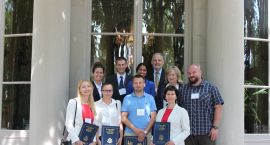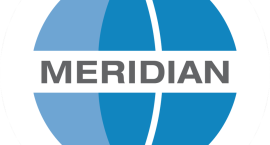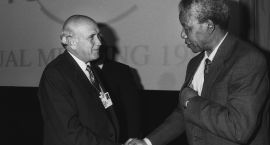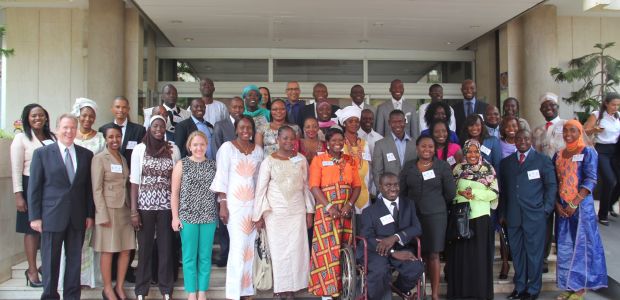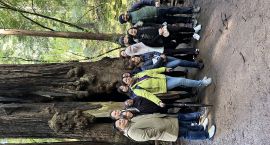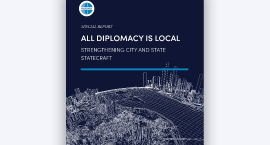It was quite historic, a reunion of over 40 Young Africans, meeting in Dakar, Senegal to brainstorm how to collaborate across the continent, to discuss the notion of what it means to be a Young African Leader and to share stories of successes and challenges in the work of moving Africa forward in the areas of democracy, youth and women’s empowerment, entrepreneurship and education.
Our group was comprised of alumni from various U.S. State Department run programs under the aegis of the Young African Leaders Initiative( YALI), a signature program conceived by President Obama in his bold vision for a new era of U.S.-Africa relations and youth engagement.
The symbolism of kicking off the 2 day seminar with a tour of Goree Island, a memorial of the Atlantic Slave Trade and UNESCO World Heritage site which represents an important part of Africa’s history, was sobering and relevant. You need to know your past to plan your future. In particular, many of us were struck by the House of Slaves and the Door of No Return (so named because once slaves crossed this door to board the ship, it was bye bye Africa forever). A beautiful island now with amazing architecture, it is easy to understand the horrors that slaves went through after they were captured from all across West Africa, crammed in Slave Houses for up to three months, men under 60 kgs fattened and living in squalid conditions, then families separated forever with the father being sent to Louisiana , the mother to Brazil or Cuba, and the child to the West Indies for example. This was done presumably to ensure that they had no connection to their family, their roots and their identity. It does beg the question for us Africans who remained – do we know our identity, roots and what Africa means for us? It is estimated that a staggering 20 million slaves were shipped over 350 years.
Launching the seminar, Deputy Assistant Secretary David Gilmour from the U.S. Department of State noted that during President Obama’s recent trip to Africa throughout Senegal, Tanzania and South Africa, he stated that youth, who comprise an estimated 60 percent of the continent’s population, “… will be the determining factor for the fate of Africa”. He also explained how they are planning to evolve the YALI program by launching a Washington Fellowship program in 2014 that will engage 500 new young leaders across Africa. The new program that runs 6-8 weeks in the U.S. includes a leadership and mentoring component at a U.S. academic institution along three tracks: Public Administration, Entrepreneurship and Civic Management. There will also be internship opportunities for 100 competitively selected from the group. As alumni and beneficiaries of the program, we enthusiastically proffered our views on what could be done to enhance the program – from supporting democratic efforts, ensuring embassy involvement, providing protection of alumni in politically hostile countries to opportunities for seed funding, media training, and increasing women’s participation and mentoring.
Dr. Vera Songwe from the World Bank presented on “Access to Financing” and the projects funded by the Breton Woods institution, and faced tough questions from the group about the many constraints facing youth in Africa in gaining access to capital. These ranged from lack of collateral for borrowing to prohibitive interest rates in most African countries and lack of guidance on how to apply for loans.
Eric Kacou, the cofounder of Entrepreneurial Solutions Partners and a Harvard Mason Fellow, inspired us with a simple video illustrating the power of any one of us to take action, to do the right thing even when you stand alone at first, and the power of working as a group to overcome obstacles. Serve as a role model and others will follow. Eric had us break up into groups to explore how to collaborate more effectively as Young African Leaders and to come up with concrete solutions around three core themes: Youth, Education and Entrepreneurship. Eric, who is also an author, delved into the dangers of the “Survival Trap Cycle” which starts when people constantly fail – it affects their mindset , operating reality and actions, and as a result of failing or perceived failures, people lose confidence, resort to zero sum game thinking, adopt risk aversion, become defensive and deal in the blame game. The solution out of this damaging cycle is a change of attitude – adopting the Archimedean mindset – as Archimedes said “Give me a lever and I can move the world”, seeking intelligent capital and being honest about the true reasons for our failures. Is our lever a strong and effective YALI group of leaders across of Africa?
Upon visiting the West African Research Center we were welcomed by its Director, Dr. Ousmane Sene, who led an open discussion on what it actually means to be a Young African leader before introducing us to the youth behind Y’En A Marre (We are Fed Up), a political grassroots movement in Senegal that stood up to authority and endured beatings and oppression during demonstrations as they fought against repressive, anti-democratic changes to the constitution that extended the president’s term in power and increased his powers. They used hip hop as a tool to reach out to and engage the youth in the country.
Joel Mangan, a fellow African now working at IBM’s New York office as a program manager in their Corporate Citizenship practice, shared with us ICT solutions for development in a hyper connected world, about how IBM brings expertise to ideas, and explained how Watson, IBM’s successful foray into cognitive computing and winner of Jeopardy 2010, could be used to support healthcare in rural Africa through medical imaging and diagnosis. Joel also told us about IBM’s program “Corporate Service Corps”. In this premier leadership development program, 500 competitively selected IBMers who represent top talent are sent to emerging markets to exploit IBM’s skills in teams of 12 to address real world challenges from unemployment to education and healthcare. Joel shared the statistic that “90 percent of the world’s data has been created in the past two years” and made the interesting observation that almost all important solutions in Africa in the past 5 years have come from Africa.
In another session, Trust Africa employed a case study approach to get us to form groups, brainstorm and prepare a pitch to different kinds of available funders – a Crowd-funding website, Microfinance Institution, Wealthy Athlete and a Pan African Donor Agency. It was an eye opening exercise designed to help us think about our audience when applying for funding and tailoring the message appropriately.
Special thanks to Meridian International which organized the Reunion Seminar in Dakar on behalf of the U.S. State Department. Senegal, with its great nightlife, French infused culture, warm people and monuments of renaissance is definitely worth a visit.
For me personally, the week was made great not only because of the valuable exchanges, the informative sessions, the networking and contacts, but also because it was a poignant reminder that there is much work to be done in Africa on the democratic, development, and economic front and that the people to drive that change are us – the youth. The setting of Senegal could not have been more different from Kenya, my home country – French speaking, almost 95% Muslim with a population of 12.5 million compared to Kenya’s Anglophone, 40 million and 75% Christian population. The Senegalese economy is based on tourism, commercial fisheries and fertilizer production while Kenya is fueled by agriculture, tourism, horticulture, services, and recently, ICT. On the surface, it seems we could not be more different– yet we are connected by one thing – we are Africans and our destinies are intertwined by virtue of our hopes and dreams while living on the same great continent.
Some questions for us to continue to ponder and act on as alumni: where do we go from here – a secretariat or some form of multi –country based special organization set-up for Young African Leaders alumni to have a voice in African Affairs or do we continue to collaborate with each other across borders without a formal organization but knowing each other’s strengths do we share support and resources as needed? How do we reconcile our diverse mandates, experiences, languages and use those as a driving force? One thing is for sure. It is better to travel together than travel alone as Eric Kacou reminded us.
We owe it to ourselves, to our beautiful continent and to our passionate people to think and act to improve the fates of our people. If not us, then who, if not now, then when?
By Ken Mwenda Gikunda
eMobilis Mobile Technology Institute
Nairobi, Kenya
Email: ken@emobilis.org
Twitter: @kenyanken









